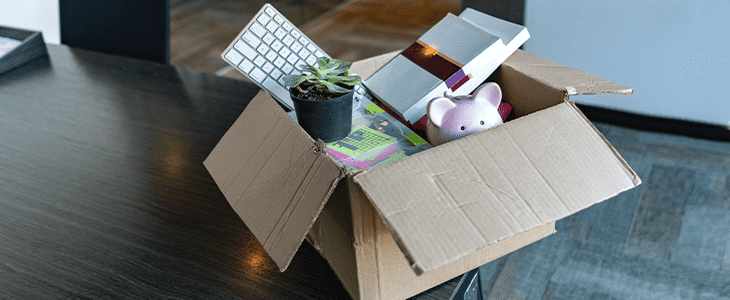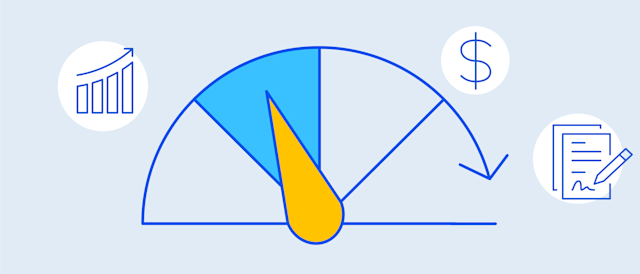How to Rebuild Credit After Being Unemployed

Summary
If you’re just returning to work after experiencing a job loss, it’s a great time to focus on your credit health. Check out our tips for getting on track.
In this article:
Losing your job can have a far-reaching impact on your financial situation. While you were unemployed, you may have had to make some tough decisions about money, and some of your bills might have even fallen behind. If unemployment impacted your credit, the good news is rebuilding it is possible, with things like a long-term plan, determination and the patience to see it through.
Does unemployment affect your credit score?
When you lose a job, you might file for unemployment benefits. Fortunately, there’s no direct connection between collecting unemployment and credit score1. Plus, losing your job doesn’t necessarily result in red flags on your credit report . It’s the financial ripple effect of being on unemployment that can hurt your credit – such as paying bills late or increasing your credit utilization ratio.
How to start rebuilding credit
From updating your monthly budget to tackling outstanding debt, you might be struggling with the question, “How do I get my credit back on track?” Here are some simple steps that can help you start improving your financial situation:
Update your budget. When you start earning a paycheck again, you can update your budget to reflect your new income. Losing your job can have a trickle-down effect that's hard to shake. The good news is rebuilding your credit is possible. Check out our latest tips: how to create a budget for the first time. Once you subtract your monthly expenses, look for ways to cut back. If you stopped spending money on things like takeout meals, pricey lattes and streaming subscriptions while you were unemployed, you might not even miss them now. Instead of adding them back into your budget, think about putting that money towards outstanding debt, including those pesky credit card bills.
Use credit cards wisely (and start paying them down). Job loss may have forced you into using your credit cards to stay afloat, so your debt might be a little higher than you want. These handy tips on how to pay off credit card debt can give you some ideas about chipping away at the balances. Don’t cut up all those credit cards yet, though. If you’re smart about it, there are ways to build (or rebuild) your credit by using credit cards to your advantage. (Tip: If you use them and pay them off on time every month, it actually looks good on your credit report.)
Pay your bills on time. One of the best ways to build your credit is also one of the simplest: Pay your bills on time. Failure to do so can do some serious damage to your credit score. (Remember that once it hits the 90-day delinquency mark, it stays on your credit report a whopping seven years.2) We know this can be easier said than done, so we’ve compiled some simple steps on how to pay your monthly bills on time to help you along.
Check your credit report regularly. By federal law, all consumers are entitled to a free credit report from all three major credit bureaus every 12 months. Examining your credit report can show you where you’ve gone wrong so you can start healthy new financial habits. You also may wind up finding errors on your credit report that are bringing your score down. If you do, you can dispute each error. It’s not a complicated process, so don’t panic if you’ve never done it before. Once you’re ready, this primer on how to correct credit report mistakes can walk you through the process.
Boost your financial IQ. A little knowledge goes a long way when it comes to your personal finances, and now that your income is more stable, it’s a great time to tap into those resources. Many lenders offer free financial education on topics like budgeting, managing debt and protecting your identity. A number of these resources are designed to be fast and painless so you can learn quickly and immediately put the information to use.
You can get back on track
If you were asking the question, “Does being unemployed affect your credit score?,” you can breathe a sigh of relief. There’s no doubt that losing your job can have a trickle-down effect that’s hard to shake, but with the right tools, a well-executed plan and patience, you can get your finances back to a comfortable place.
1. https://www.cnbc.com/select/does-unemployment-affect-credit-score/
2. https://www.federalreserve.gov/creditreports/pdf/creditreportsscores_2.pdf
This article is for general education and informational purposes, without any express or implied warranty of any kind, including warranties of accuracy, completeness, or fitness for any purpose and is not intended to be and does not constitute financial, legal, tax, or any other advice. Parties (other than sponsored partners of OneMain Financial (OMF)) referenced in the article are not sponsors of, do not endorse, and are not otherwise affiliated with OMF.



